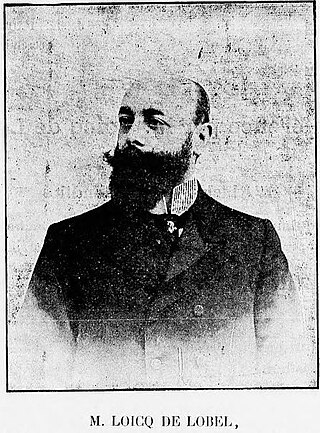Baron_Loicq_de_Lobel
Baron Loicq de Lobel
French engineer
Léon Loicq de Lobel, sometimes referred to as Baron Loicq de Lobel, was a French engineer and aristocrat, primarily known for his briefly popular proposal in 1906 to build a bridge-and-tunnel link between Siberia and Alaska.[1]

This biography may need cleanup. (May 2016) |
In 1898, de Lobel visited the Klondike region as an agent of the French government.[2] In 1899, de Lobel authored Le Klondyke, l'Alaska, le Yukon et les Iles Aléoutiennes, a 48-page piece originally published in the Bulletin de la Société de Géographie. The work was published as a separate volume in 1899, and reprinted in 1923. The work is a simple account of de Lobel's voyage in those regions.[3]
In August 1906, the Czar Nicholas II of Russia issued an order authorising a Franco-American syndicate represented by de Lobel to begin work on the Trans-Siberian Alaska railroad project, involving bridging and tunnelling in the Bering Strait.[4][5][6]